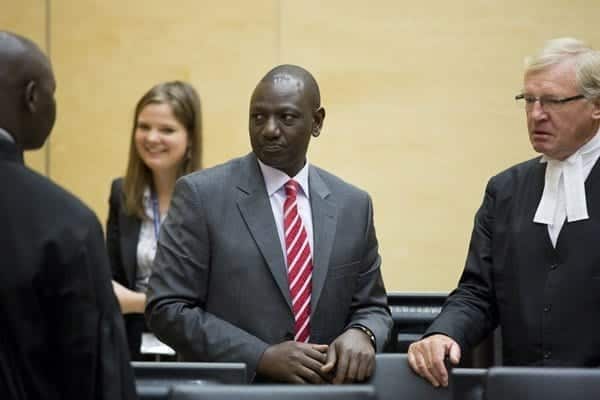
NAIROBI, Kenya, Sep 4 – Challenges abound for the ICC in Kenya cases Since Kenya became the subject of the International Criminal Court (ICC), it has had to defend and shield itself from allegations of impartiality and political scheming.
The court has faced massive criticism in its choice of the ‘Ocampo Six’, prosecution witnesses and case victims.
Critics argue that the ICC relied on coached witnesses with the goal of fixing the six suspects.
This was strongly argued by the defence during the confirmation of charges hearings held in September in 2011.
Lawyers of Uhuru Kenyatta, William Ruto, Francis Muthaura, Henry Kosgey, Hussein Ali and journalist Joshua arap Sang accused Ocampo of conducting ‘shoddy’ investigations and using fake witnesses to build his case.
The confirmation of charges hearings opened a can of worms as identification and exposure of witnesses became the norm with the ICC doing its best to address the challenges.
At the time, social media became the perfect platform of unleashing names of alleged witnesses.
A trying moment for the ICC was in March 2012 when Ugandan lawyer David Matsanga made public a video with one of the witnesses saying he lied to the court.
The witness was later dropped from the ICC list as Witness No. 4 who was the only witness who testified before charges against Muthaura were confirmed. The prosecution also admitted that his evidence was used against Kenyatta at the pre-confirmation stage.
Withdrawal of witnesses and their evidence became the biggest confrontation for the ICC since protection of witnesses and victims is core and sensitive for it to preserve its incriminating evidence.
The current ICC Prosecutor Fatou Bensouda when announcing withdrawal of witnesses and charges against Muthaura in February 2013 explained that witnesses had been intimidated and others feared for their lives.
In her applications, she has also repeatedly reported that witnesses were being harassed and some of them had declined to testify due to such fears.
Like her predecessor Moreno-Ocampo, Bensouda has been defending the prosecution and explained that thorough investigations had been done and that the court narrowed down on the six individuals but due to lack of sufficient evidence charges against Ali, Kosgey and Muthaura’s were dropped.
The prosecutor has maintained that the prosecution has enough witnesses and evidence to use against Ruto, Sang and Kenyatta.
The accused persons have also said they were targeted and have expressed their determination to prove their innocence through their able teams of lawyers.
Whereas the defence has denied ever intimidating ICC witnesses and victims, the prosecution has to date claimed that its witnesses are being intimidated.
However, it is confident that it has reliable witnesses with strong evidence that will lead to convictions of the three Kenyans.
Despite continued efforts and constant reminder that ICC started investigations in Kenya because of the 2007-8 post poll violence and after Kenya failed to instigate a local process to address the violence, the ICC process has been perceived as a political process.
Withdrawal of charges against Muthaura post-confirmation stage was especially a controversy as questions over the credibility of other witnesses remained a puzzle and a matter of contention.
Even though the prosecutor argued that some witnesses have been killed, she has been challenged by the defence to file applications and give evidence of the said deaths.
Following the prosecutor’s announcements and applications, out of the 12 key witnesses used in the Kenyatta case, only five are remaining and in the Ruto-Sang case, there are about 42 witnesses.
The number however could change as the prosecution has said it will ask to be allowed to call additional witnesses.-capitalfm.co.ke







